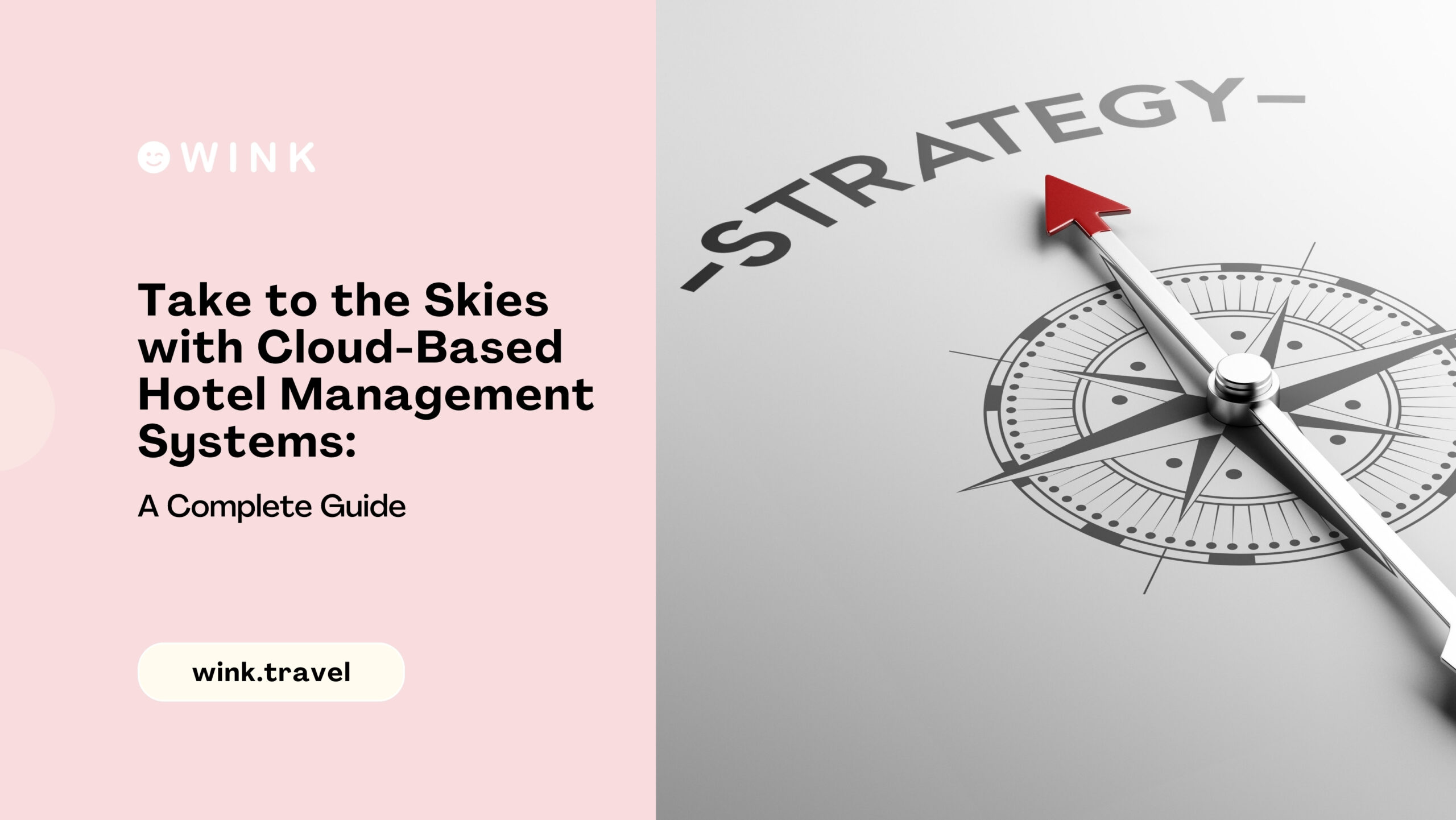The hospitality industry is marked by a continuous array of activities where hotels consistently navigate the complexities of operational management, guest expectations, and revenue goals. In today’s technology-driven environment, implementing effective hotel management systems has shifted from being an optional enhancement to a crucial requirement.
These systems streamline everything from daily tasks to big-picture strategy, giving hoteliers the insights they need to succeed. Cloud-based hotel management systems have emerged as a game-changer, offering a level of flexibility and efficiency that traditional on-premises systems simply can’t match.
This comprehensive guide will explore the advantages of cloud-based hotel management systems, including remote access, scalability, cost-effectiveness, and enhanced security. We’ll also delve into key features, future trends, and real-world examples of successful implementations.
Table of Contents
Understanding Cloud-Based Technology
Imagine accessing all your hotel’s technology needs through a virtual office—that’s the essence of cloud computing. Instead of relying on physical servers and hardware taking up space on your property, cloud computing allows you to access a network of remote servers hosted on the Internet. This network provides services like data storage, software applications, and processing power, all accessed on demand, much like how electricity is obtained from a power grid.
This setup offers significant advantages for hotels:
- Flexibility and Scalability:You can easily adjust your technology resources as your needs change, paying only for what you use. This is perfect for the hospitality industry, where demand fluctuates seasonally.
- Accessibility and Remote Access:Manage your hotel from anywhere with an internet connection. Access real-time data, manage bookings, and communicate with staff, whether you’re at your desk or on the go.
- Cost Savings: Reduce upfront costs by eliminating the need for expensive hardware and software investments. Cloud providers handle maintenance and updates, freeing up your budget and IT staff.
- Enhanced Collaboration:This will enable staff to access and share information seamlessly, no matter where they are, leading to better communication and teamwork.
Unlike traditional on-premises systems, which require dedicated hardware and IT management, cloud-based systems are hosted off-site and accessed via the Internet. Thus, they offer greater flexibility, scalability, and cost-effectiveness for hotels of all sizes.
Key Features of Cloud-Based Hotel Management Systems
Cloud-based hotel management systems have features designed to streamline operations and enhance the guest experience. These systems typically include modules for:
- Property Management involves Managing all aspects of your hotel’s daily activities, including front desk operations, housekeeping, maintenance, and reporting.
- Reservation Management: You will manage reservations from various channels, such as online travel agents (OTAs), your hotel website, and phone bookings.
- Guest Relationship Management (CRM): Store guest preferences, track interactions, and personalize communication to boost guest satisfaction and encourage loyalty.
- Channel Management: Manage room inventory and rates across multiple online platforms, ensuring consistency and maximizing occupancy.
- Revenue Management: Analyze data and optimize pricing strategies to maximize revenue.
- Point of Sale (POS): Manage transactions at various points of sale within the hotel, like restaurants and spas.
- Reporting and Analytics: Generate detailed reports on key performance indicators to help managers track performance and make informed decisions.
Cloud-based systems free up staff to focus on delivering exceptional guest experiences by automating tasks, eliminating manual processes, and providing real-time access to data. This ultimately improves efficiency, increases guest satisfaction, and drives revenue growth.
Remote Access and Flexibility: Manage Your Hotel From Anywhere
Cloud-based hotel management systems empower hoteliers with unparalleled freedom and flexibility. With just an internet connection, you can manage your hotel from anywhere in the world. Whether at home, traveling, or even on vacation, you can easily monitor real-time occupancy rates, respond to guest requests, and adjust pricing strategies.
This remote accessibility is a game-changer for hotel management, allowing for:
- Improved responsiveness: Address guest needs and resolve issues immediately, no matter where you are.
- Increased efficiency: You can manage tasks, access information, and make decisions on the go, saving time and boosting productivity.
- Better work-life balance: Offer staff the flexibility to work remotely, improving job satisfaction.
- Enhanced decision-making: Access real-time data to make informed decisions from anywhere, at any time.
Cloud-based systems achieve this through secure web portals and mobile apps, allowing authorized personnel to access the system from any device with an internet connection. This ensures smooth hotel operations, even when managers and staff are away from the property.
Furthermore, this flexibility extends to scalability. Cloud-based systems can quickly adapt as your hotel grows or your needs evolve. Whether expanding your property, adding new services, or experiencing seasonal fluctuations in demand, cloud-based systems can scale accordingly, providing the agility and flexibility needed to thrive in the dynamic hospitality industry.
Cost-Effective Solutions: Reduce Expenses and Maximize ROI
One of the most significant advantages of cloud-based hotel management systems is their cost-effectiveness. Compared to traditional on-premises solutions, cloud-based systems can significantly reduce both upfront costs and ongoing expenses.
With on-premises systems, hotels must invest in expensive hardware, such as server network infrastructure and software licenses. They must also allocate resources for IT maintenance, software updates, and data backups. These costs can be substantial, especially for smaller hotels with limited budgets.
Cloud-based systems eliminate the need for upfront hardware and software investments. Instead, hotels pay a subscription fee to access the system and its features, much like subscribing to a streaming service. This subscription model typically includes software updates, maintenance, and data backups, reducing ongoing expenses.
Furthermore, cloud-based systems offer scalability, allowing hotels to adjust their resources based on their needs. This means hotels only pay for the resources they use, avoiding over-investment in infrastructure that may not be fully utilized. As your business grows or your needs change, you can quickly scale your cloud-based system up or down, ensuring you’re constantly optimizing your costs.
This cost-effectiveness makes cloud-based solutions particularly attractive for smaller hotels and independent properties that may not have the resources to invest in expensive on-premises systems. By embracing cloud technology, these hotels can access enterprise-grade features and functionality without the hefty price tag, leveling the playing field and enabling them to compete more effectively.
Security and Data Protection: Safeguarding Your Valuable Information
Data security is a natural concern when moving to cloud-based management systems. After all, these systems hold sensitive guest information, financial data, and operational records. However, reputable cloud providers prioritize data protection by investing heavily in robust security measures.
These measures typically include:
- Data encryption: Protecting information both during transmission and storage.
- Access controls: Limiting access to sensitive data based on user roles and permissions.
- Regular backups: Ensuring data can be recovered in case of unforeseen events like natural disasters or cyberattacks.
- Physical security: Protecting data centers with measures like surveillance and access controls.
- Compliance certifications: Adhering to industry standards and regulations, such as PCI DSS for payment card data.
When choosing a cloud-based system, hotels should prioritize security. They should research potential providers and look for those with a strong track record in security and compliance. Don’t hesitate to ask providers about their specific security protocols and data protection policies. Checking for relevant certifications, such as ISO 27001 for information security management, can also provide assurance. Finally, reading reviews and testimonials from other hotels can offer valuable insights into a provider’s security and reliability.
By carefully evaluating cloud providers and their security measures, hotels can confidently embrace the benefits of cloud technology while ensuring their valuable data remains protected.
Case Studies: Real-World Success with Cloud-Based Systems
The Library Hotel Collection, a group of four unique boutique hotels in New York City, implemented a cloud-based system to streamline management across its properties. This resulted in a 15% reduction in booking errors due to centralized reservations, a 10% increase in staff productivity through streamlined communication, and a 5% boost in positive online reviews thanks to more personalized guest experiences.
Similarly, the Hotel Riu Plaza España in Madrid adopted a cloud-based system to enhance operational efficiency and guest experience. This led to a 20% reduction in guest wait times through streamlined check-in/check-out, a 10% reduction in housekeeping labor costs due to optimized management, and a 5% increase in guest satisfaction scores by delivering personalized services.
These examples showcase how cloud-based systems can improve hotels’ efficiency, guest satisfaction, and overall operational effectiveness.
The Future of Cloud-Based Hotel Management: Embracing Innovation
The future of hotel management is undeniably linked to the ongoing evolution of cloud technology. Emerging trends like artificial intelligence (AI), the Internet of Things (IoT), and mobile-first strategies are set to further transform the hospitality industry.
AI-powered chatbots and virtual assistants can enhance guest communication and personalize services. At the same time, IoT devices can enable smart room controls, optimize energy consumption, and gather valuable data on guest preferences. As more travelers rely on smartphones, mobile-first strategies are essential for hotels to cater to this growing segment.
These trends will likely lead to even greater automation, personalization, and data-driven decision-making in hotel management. To prepare for these changes, hotels should invest in cloud-based systems with AI and IoT capabilities, develop mobile-friendly websites and apps, prioritize data security and privacy, and train staff on new technologies and digital skills.
By embracing these trends and proactively adapting to the changing landscape, hotels can leverage cloud technology to create a more efficient, guest-centric, and sustainable future.
Conclusion: Elevate Your Hotel with Cloud Technology
Cloud-based hotel management systems offer a compelling solution for hotels seeking to optimize operations, enhance guest experiences, and achieve sustainable growth. Their benefits, including remote access, scalability, cost-effectiveness, and robust features, empower hotels to navigate the challenges of the modern hospitality industry.
By embracing cloud technology, hotels can unlock new levels of efficiency, agility, and guest-centricity. We encourage you to explore the diverse range of cloud-based solutions available and find the perfect fit for your hotel’s unique needs. The future of hotel management is in the cloud, and the time to embrace it is now.









